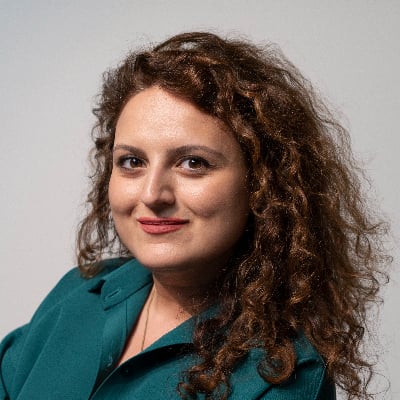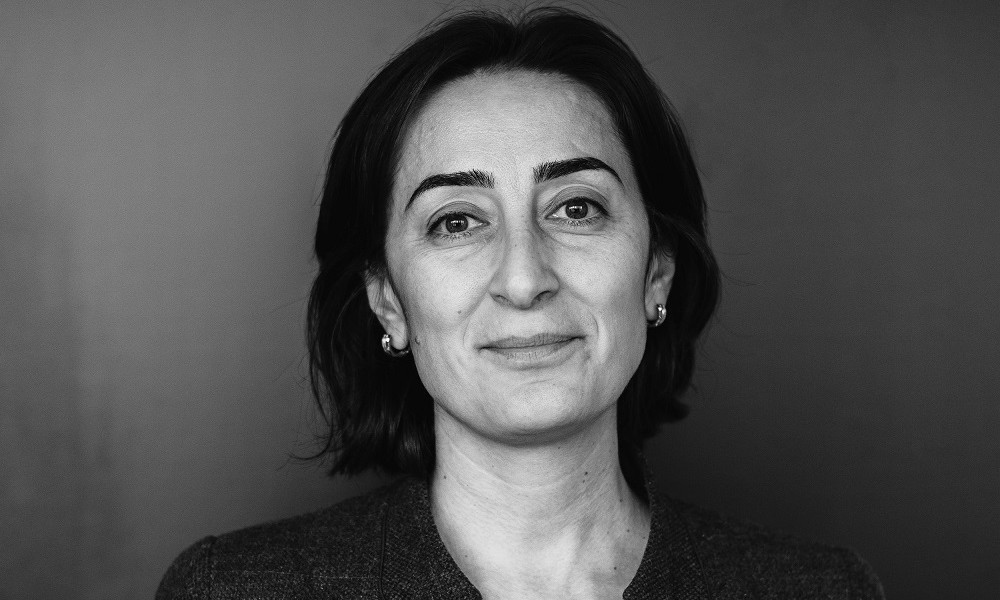Many people sent their congratulations and good wishes to others on social media during the New Year holidays. Unfortunately, there was also a significant amount of discriminatory, insulting, and hate speech directed towards Indian youth who celebrated the New Year in Republic Square. This wave of criticism started after Russian photojournalist and blogger Alexander Patrin posted photos of the Indian youth gathered around the main Christmas tree. Media.am, with the help of cultural anthropologist Lusine Kharatyan, attempted to delve into the reasons behind this behavior and discuss its various issues and irregularities.
There was a lot of discussion on social media at the beginning of the year about an Indian youth “owning” Republic Square. What was going on, and why?
In Armenia, we traditionally celebrate New Year at home rather than in public places like Republic Square. However, it’s not uncommon for non-locals to celebrate New Year’s Eve in Republic Square since they don’t necessarily follow our cultural traditions. This phenomenon is common, as Armenians who celebrate New Year in other countries also gather in public places for public events.
The same thing happened in this case. There were a large number of Indians, Russians, Iranians, that is, people whose permanent residence is not Armenia, in Republic Square. And, as one would expect, they tried to celebrate the New Year as cheerfully as possible. There was music, singing, dancing.
There was a lot of discussion and controversy surrounding the recent post by a Russian blogger that contained a controversial message. Some groups used this message in a targeted way, which led to aggressive opinions, hate speech, and insulting posts being generated and shared on social platforms. Some people even drew parallels, claiming that Azerbaijanis celebrate the new year in Stepanakert, Indians in Republic Square, and Armenians in Yerablur. Discussions went as far as to assert that Armenians were leaving their country or that Artsakh was being de-Armenianized and that Indians were taking their place. Some went as far as to predict that in 10 years, Armenia would become India, and so on.
After the initial wave of reactions, which were mostly emotional and extreme, a more sober and reasonable response followed. Many users started speaking out against racist and discriminatory attitudes and posts. The positive aspect of this situation is that it sparked a healthy discussion within society. As time passed, the discussion became more self-regulated and less guided by external forces.
Despite provocative and targeted comments, real users also posted aggressive comments. Why did our citizens react so aggressively to the provocation?
All societies can fall into dangerous patterns, and many pressing issues have been ignored, leading to heightened tensions among people.
There was an issue of compassion to consider. It was deemed unacceptable for a certain portion of society to celebrate the arrival of the New Year with much noise, decorations, and festivities while so many losses occurred in the preceding year.
The small number of Armenians present in Republic Square suggested that there was no widespread agreement among the public to celebrate the New Year in such a manner. It seems that the municipality or state had made some effort to create a festive atmosphere despite this lack of public consensus.
This was one of the reasons for the violent and aggressive public reaction.
We have many fears that lead us to behave in a certain way. One of our biggest fears is that, as a small, 98% mono-ethnic society, we may be conquered by our neighboring countries and be forced to assimilate and ultimately perish. This fear causes anxiousness and fearfulness towards any foreign identity.
There are times when certain media outlets exploit this fear as an excuse to sensationalize stories. They claim that Armenians will no longer exist in Armenia. When citizens are not media literate, they may not be able to recognize this as a provocation. As a result, they may only rely on their initial emotional response and not know how to react appropriately.
What causes this collective fear and what are its manifestations?
It is characteristic of all societies to build the identity of their community against the identity of others. Our identity was constructed around the genocide and the Karabakh conflict. These fears have resurfaced after the last war and recent developments. There is a well-known phenomenon in social science: when a collective trauma, in the case of a slight similarity in situation, becomes actualized and an active trauma. In the case of Armenians, that trauma is the genocide.
These fears are intensified by the reality we face. When our neighbors propagate the notion of Armenia as “Western Azerbaijan”, their historical homeland, etc.
On the other hand, our society has not yet fully recovered from the trauma of the past wars and recent events; this has led to an increase in general aggression, which is reflected in aggressive behavior, hate speech, and discriminatory attitudes.
During the New Year, there was a discriminatory and racist attitude towards Indian youth. Is this due to “small nation syndrome”?
If we are discussing racism and its forms, it is important to note that the issue has nothing to do with the phenomenon known as “small nation syndrome”. In fact, there are larger countries such as Russia that are more prone to racism and chauvinism. Additionally, we can look at examples from history, such as Nazi Germany, which was a large country but still exhibited extreme racism.
I believe it is a flawed representation of ourselves to not accept one or the other, as the reality is quite different.
However, In any society, there is an internal stereotypical classification where certain groups of people are considered more “acceptable” or less “acceptable” than othersIn any society, there is an internal stereotypical classification where certain groups of people are considered more “acceptable” or less “acceptable” than others. For instance, Europeans and Russians are generally viewed more positively than Muslims or Indians. This leads to different reactions towards people from different nations.
In the case of small nations, it is expected to feel scared about how these changes may affect and alter your way of life. However, regardless of these fears, change is essential for the growth and progress of a society. If a society remains rigid and closed for an extended period, it will rapidly decline. The only way to thrive is by adapting, being open-minded, and being flexible to new ideas and cultures.
Today, our task is to reflect on ourselves and reconsider our thoughts and approaches. It is crucial to create space for the emergence of new narratives that are directed toward the future. Our goal should be to generate and share multiple new stories with the public, as that is the only way to craft a current, significant story and establish an identity around it.
There are certain beliefs and ideas that we hold onto as absolute truths. We often don’t question or challenge them, but in order to truly progress and move forward, we must be willing to break them down into their individual components, study them thoroughly, and then rebuild them with a fresh perspective. Otherwise, we’ll remain stuck in the same place and unable to grow.
Interview: Marianna Danielyan







